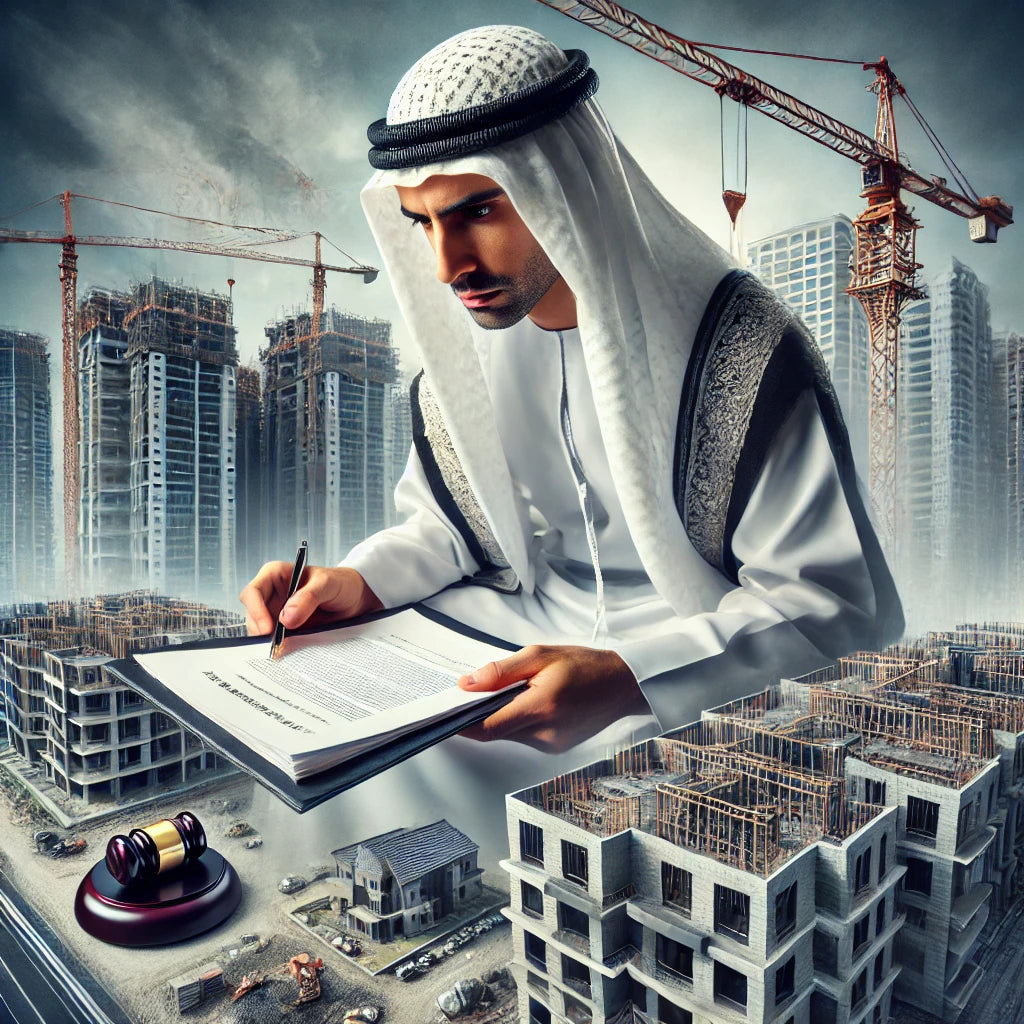
Understanding Property Title Disputes and Development Contracts in the UAE
The real estate market in the United Arab Emirates (UAE) is vibrant and fast-growing, attracting investors, developers, and buyers from around the world. However, with the booming property sector comes the potential for disputes, particularly related to property titles and development contracts. These disputes can have significant financial and legal implications, making it crucial for all parties involved to understand the risks and how to mitigate them. This blog provides an in-depth look at property title disputes and development contracts in the UAE, offering insights into the legal framework and strategies for resolution.
1. Property Title Disputes: Causes and Challenges
Property title disputes arise when there is uncertainty or disagreement over the ownership of a property. These disputes can be complex and may involve multiple parties, including developers, buyers, investors, and government authorities.
-
Unclear Title Deeds: One of the most common causes of property title disputes is unclear or improperly documented title deeds. This can occur when property transactions are not properly registered or when there are errors in the documentation process. An unclear title deed can lead to conflicting claims of ownership, making it difficult to establish who legally owns the property.
-
Fraudulent Transactions: Unfortunately, fraudulent transactions are not uncommon in the real estate sector. This can include the sale of a property by someone who does not have the legal right to do so, or the creation of fake title deeds. Fraudulent activities can lead to severe disputes and financial losses for buyers and investors.
-
Boundary Disputes: Disagreements over property boundaries are another common issue, particularly in cases where adjacent properties have been improperly surveyed or where there are conflicting interpretations of property lines.
-
Inheritance Issues: Inheritance can complicate property ownership, especially when multiple heirs are involved. Disputes may arise over the distribution of property assets, particularly if the title deed has not been updated to reflect the rightful owners.
2. Legal Framework for Property Title Disputes
The UAE has a robust legal system to address property title disputes, ensuring that ownership rights are protected and disputes are resolved in a fair and transparent manner.
-
Dubai Land Department (DLD): In Dubai, the Dubai Land Department (DLD) plays a central role in regulating real estate transactions, including the registration and verification of title deeds. The DLD provides a platform for resolving property disputes, offering mediation services and legal assistance.
-
Abu Dhabi Municipality: In Abu Dhabi, property title disputes are managed by the Abu Dhabi Municipality, which oversees property registration and the resolution of title-related issues.
-
Civil Transactions Law: The UAE Civil Transactions Law (Federal Law No. 5 of 1985) outlines the general principles of property ownership and the legal process for resolving disputes. This law provides the legal framework for addressing issues related to title deeds, including the correction of errors and the handling of fraudulent claims.
-
Court Proceedings: When disputes cannot be resolved through mediation or negotiation, they may be brought before the UAE courts. The courts have the authority to determine the rightful owner of a property based on the evidence presented, and their rulings are legally binding.
3. Development Contracts: Common Disputes and Legal Considerations
Development contracts are agreements between developers, contractors, and investors that outline the terms and conditions for the construction and sale of real estate projects. These contracts are crucial for ensuring that all parties are clear on their obligations and rights. However, disputes can arise for various reasons.
-
Breach of Contract: One of the most common disputes in development contracts involves a breach of contract. This can occur when a party fails to fulfill its contractual obligations, such as completing construction on time, delivering the property as per the agreed specifications, or making timely payments.
-
Project Delays: Delays in project completion can lead to significant financial losses, particularly for investors who have purchased properties off-plan. Disputes may arise over who is responsible for the delay and whether compensation is owed to the affected parties.
-
Quality of Construction: Disputes over the quality of construction are also common. Investors or buyers may claim that the finished property does not meet the standards outlined in the development contract, leading to demands for repairs, compensation, or even cancellation of the contract.
-
Changes in Project Scope: Changes to the project’s scope, such as alterations to design, materials, or construction timelines, can lead to disputes if these changes are not clearly communicated and agreed upon by all parties involved.
4. Strategies for Resolving Disputes
When disputes arise over property titles or development contracts, it’s essential to address them promptly to avoid escalating conflicts and financial losses.
-
Mediation: Mediation is often the first step in resolving disputes. It involves a neutral third party who helps facilitate negotiations between the disputing parties. Mediation is less formal than court proceedings and can lead to quicker, mutually agreeable solutions.
-
Arbitration: Arbitration is another alternative dispute resolution method commonly used in the UAE, particularly for construction-related disputes. In arbitration, an independent arbitrator or panel hears the evidence from both parties and makes a binding decision. Arbitration is preferred for its confidentiality and the expertise of arbitrators in handling complex construction issues.
-
Legal Action: If mediation and arbitration fail to resolve the dispute, legal action may be necessary. In such cases, the dispute is brought before the UAE courts, where a judge will make a final ruling. While litigation can be time-consuming and costly, it may be the best option for resolving serious disputes or cases involving significant financial stakes.
-
Preventive Measures: To prevent disputes from arising, parties should ensure that all contracts are clearly drafted, with specific terms regarding responsibilities, deadlines, quality standards, and dispute resolution methods. Proper documentation and regular communication can also help mitigate potential issues before they escalate.
5. Protecting Your Investment
Whether you are a developer, investor, or buyer, protecting your investment is crucial in the UAE’s competitive real estate market. Here are some tips to safeguard your interests:
-
Conduct Due Diligence: Before entering into any property transaction, conduct thorough due diligence to verify the legitimacy of the title deed, the reputation of the developer, and the terms of the development contract.
-
Seek Legal Advice: Engage a qualified lawyer with expertise in UAE real estate law to review contracts, provide advice, and represent you in case of disputes. Legal guidance is invaluable in navigating the complexities of property transactions and contracts.
-
Register Transactions Properly: Ensure that all property transactions are properly registered with the relevant authorities, such as the DLD or Abu Dhabi Municipality. Proper registration helps protect your ownership rights and reduces the risk of disputes.
-
Stay Informed: Keep abreast of changes in UAE real estate laws and regulations, as these can impact your rights and obligations in property transactions.
Conclusion
Property title disputes and issues related to development contracts are significant concerns in the UAE's real estate sector. Understanding the causes of these disputes, the legal framework that governs them, and the strategies for resolution can help protect your investment and ensure smooth transactions. Whether you are dealing with title deed issues or contract disputes, seeking legal advice and taking preventive measures are key to safeguarding your interests in the dynamic UAE property market.

